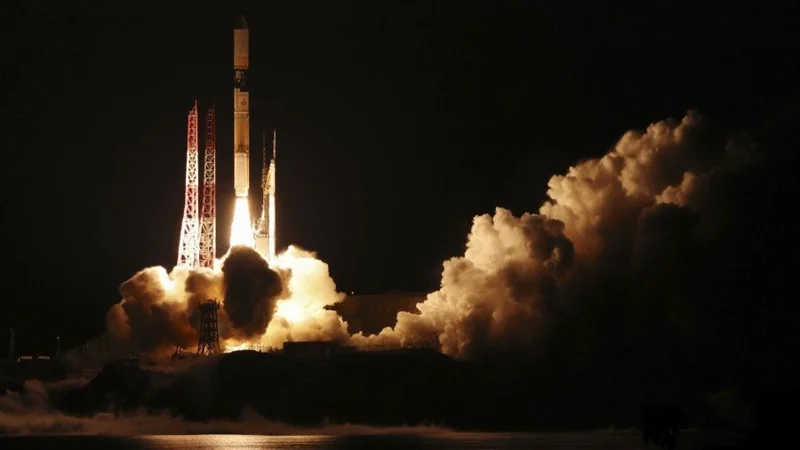Japan's final H2A rocket successfully lifts off, ends 24-yr career
Japan successfully launched its 50th and final H2A liquid-fuel rocket from a southwestern Japan island on Sunday, drawing the curtain on the series' 24-year career in support of the country's space development program, Kyodo reports.

The H2A rocket, developed by Mitsubishi Heavy Industries Ltd. and the Japan Aerospace Exploration Agency, has been replaced as the country's mainstay space vehicle by the H3 rocket, which offers a lower launch service price.
The final H2A rocket, which blasted off from Tanegashima Island in Kagoshima Prefecture at 1:33 a.m., placed in orbit a government satellite for observing greenhouse gas levels and monitoring climate change.
The satellite separated from the rocket at an altitude of around 670 kilometers near the equator and deployed its solar panels, with its operation confirmed by JAXA.
"I was more nervous than ever about the launch and feel like I'm still dreaming. We achieved our long-cherished goal of a 98 percent success rate," said Keiji Suzuki, a Mitsubishi Heavy official in charge of the rocket launch.
At a park near the Tanegashima Space Center, around 1,300 people gathered early Sunday to watch the launch, cheering as the rocket ascended in the darkness.
"I was impressed by the loud sound and light. I'm excited to see the next H3 rocket," said 7-year-old Hikari Nagoe.
Since 2001, the H2A series has supported the country's aerospace exploration by sending satellites and probes into space, raising its reliability over time.
Its long career was rocky at times. The No. 6 rocket failed in 2003 when a booster did not separate and the ground crew ordered its destruction. It was discovered later that a damaged jet nozzle was the cause of the breakdown.
It took one year and three months until the succeeding No. 7 flew successfully after alterations were made.
Sunday's launch was postponed by Mitsubishi Heavy from June 24 due to an equipment abnormality.
The H3 rocket, also developed by Mitsubishi Heavy and JAXA, is expected to help the country gain a foothold in the satellite-launch business that has become increasingly competitive with the rise of SpaceX of the United States.
The H3 rocket debuted in March 2023 but its maiden flight ended with a self-destruct order minutes after liftoff due to the failure of the second-stage engine to ignite. The succeeding launches, including the latest No. 5 in February, have been successful.
Earlier, it was reported that major general contractors in Japan are getting behind space development as they eye the Artemis lunar exploration project, which envisions the construction of a permanent base on the Moon for human activity.
